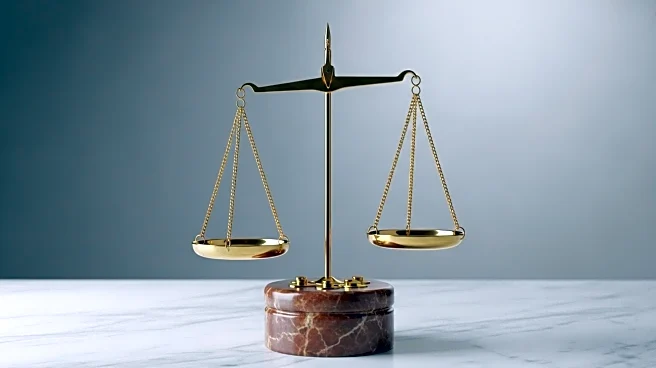What's Happening?
A federal appeals court has decided not to block the Trump administration from withholding billions of dollars in foreign aid funds allocated by Congress. The U.S. Court of Appeals for the District of Columbia Circuit chose not to revisit a previous ruling by a three-judge panel, which found that only the Government Accountability Office could challenge the administration's use of the Impoundment Control Act of 1974. However, the court's revised order provides a narrow path for nonprofits that sued over the frozen funds to continue their legal challenge. This decision temporarily supports the administration's stance that it can refuse to spend funds on initiatives it considers wasteful or contrary to national interests.
Why It's Important?
The court's decision has significant implications for the balance of power between the executive branch and Congress. By upholding the administration's ability to freeze foreign aid, the ruling reinforces President Trump's efforts to expand executive authority, potentially setting a precedent for future administrations. This could impact U.S. foreign policy and international relations, as aid programs deemed non-essential by the administration may face funding cuts. Nonprofits and aid groups, which rely on these funds, may experience financial strain, affecting their ability to deliver services globally. The decision also highlights ongoing legal debates over the scope of presidential powers and congressional oversight.
What's Next?
The coalition of aid groups that initiated the lawsuit may continue their legal battle, exploring the limited avenues left open by the appeals court's revised order. The administration's emergency request to the Supreme Court to affirm President Trump's authority to freeze the funds remains pending, which could lead to further judicial review. Political leaders and advocacy groups may respond to the ruling, potentially influencing legislative efforts to clarify or restrict executive powers related to budgetary decisions. The outcome of these legal and political maneuvers could shape future interactions between the executive branch and Congress regarding fiscal policy.









